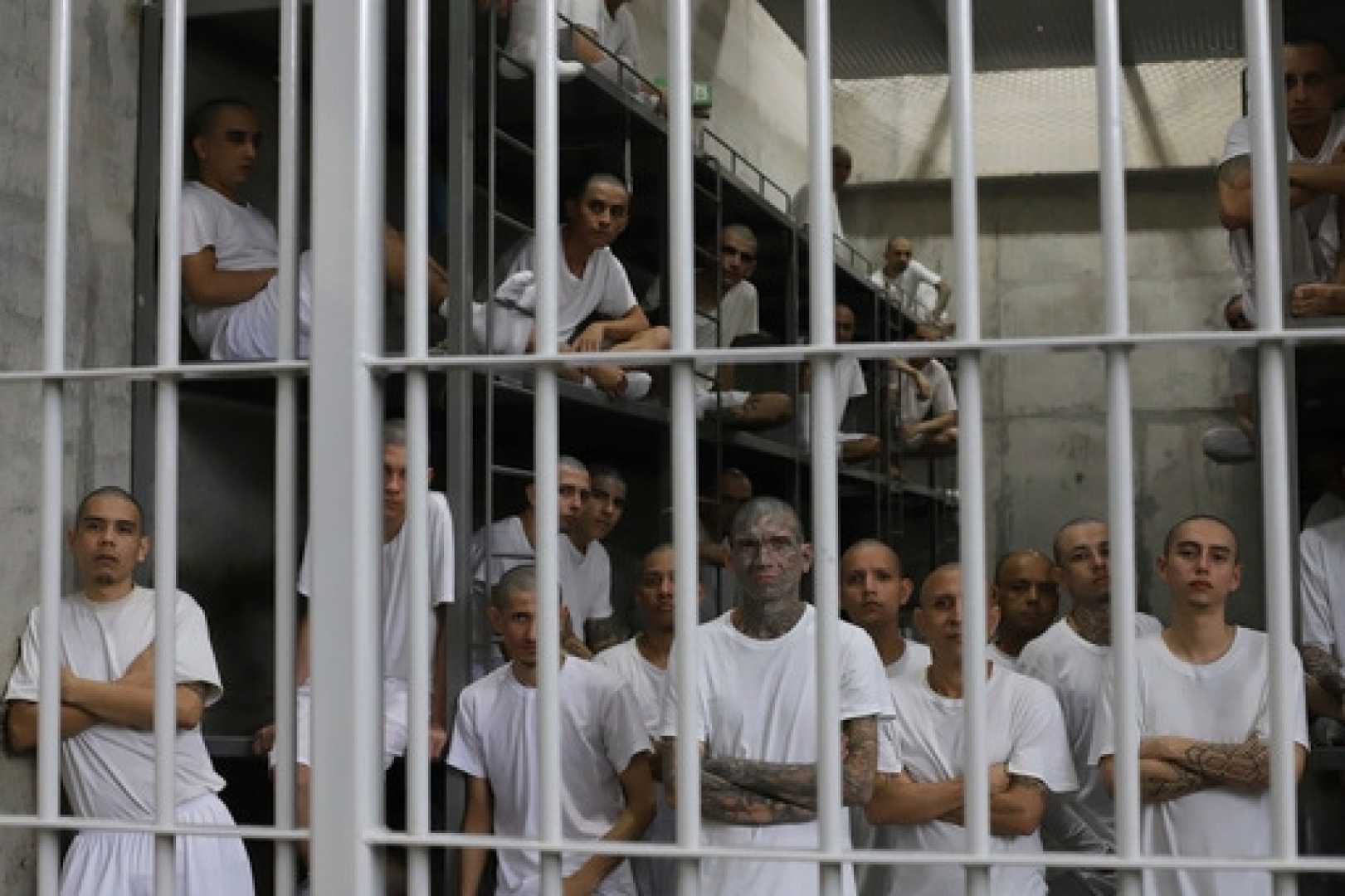World
El Salvador Agrees to House U.S. Prisoners in Mega-Prison Deal

SAN SALVADOR, El Salvador (AP) — The U.S. and El Salvador have reached an unprecedented agreement allowing the deportation of foreign nationals and the transfer of imprisoned U.S. citizens and permanent residents to El Salvador’s mega-prison, the Terrorism Confinement Center (CECOT). The deal, announced Monday, marks a significant shift in international penal cooperation.
El Salvador’s President Nayib Bukele, known for his aggressive anti-crime policies, has made the country’s harsh prisons a cornerstone of his administration. Since March 2022, over 84,000 people have been arrested in a sweeping crackdown on gangs, many without due process. The CECOT, opened in 2023, is the centerpiece of this campaign, housing up to 40,000 inmates in tightly packed cells with minimal amenities.
“We have a Constitution,” Bukele acknowledged, “but it’s a very generous offer… obviously, the administration will have to make a decision.” The agreement, described by U.S. Secretary of State Marco Rubio as “an act of extraordinary friendship,” would allow El Salvador to house dangerous criminals from the U.S., including citizens and legal residents.
The CECOT, located in Tecoluca, about 45 miles east of San Salvador, is a sprawling facility with eight pavilions. Inmates are confined to cells holding 65 to 70 prisoners each, with no visitation rights or rehabilitation programs. The prison’s dining halls, gyms, and recreational areas are reserved for guards, while inmates are subjected to strict routines, including exercise regimens and occasional motivational talks.
Human rights organizations have raised concerns about the conditions in El Salvador’s prisons. Cristosal, a human rights group, reported that the country’s prison population has surged to 110,000, despite a national population of just 6.36 million. The group has documented cases of overcrowding, lack of due process, and alleged human rights abuses during Bukele’s crackdown.
Rubio praised Bukele’s leadership, calling the agreement “the most unprecedented and extraordinary migratory agreement anywhere in the world.” However, legal experts caution that the U.S. faces significant constitutional hurdles, as the Eighth Amendment prohibits “cruel and unusual punishments,” which could include exile.
Bukele’s administration has defended the harsh conditions as necessary to combat crime. “El Salvador has managed to go from being the world’s most dangerous country to the safest country in the Americas,” Bukele tweeted earlier this year. “How did we do it? By putting criminals in jail.”
The deal comes as the U.S. seeks new solutions to address its own prison overcrowding and rising crime rates. While details of the agreement remain unclear, the partnership with El Salvador represents a bold and controversial step in international criminal justice.












